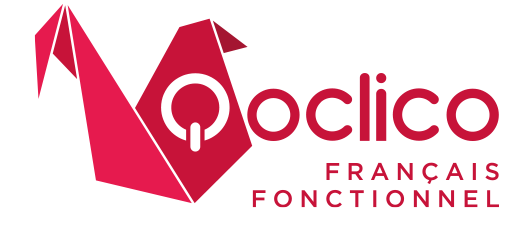French Language Learning: a collective adventure!
I really admire these international organisations that bring together so many different nationalities in the same team, sharing the same office, working for the same cause or around the same project. Established organisations attract professionals from all over the globe, of all ages, women and men, alone or with their families, and thus recreate a miniature world in cities such as Geneva, Dakar, Paris or Brussels. What a wonderful cultural mix! But what about the linguistic mix? These expatriates are very often multilingual. In such cases, a common language is naturally or logically required as a language of communication, and it is often English, even when in a group situation it is not necessarily anyone’s mother tongue. The ease, or rather pragmatism perhaps, then pushes these foreigners to evolve in their world of expatriates and to interact with each other in English. This can be of great advantage and at the same time a disadvantage.
So what’s wrong with it then? On the one hand, first languages are relegated to the home and are not really applied in other situations. Whereas even in francophone countries, French becomes an ‘optional’ option– not ideal in French-speaking areas! But more importantly, the integration of these people, often already poses some challenges, becomes even more so. Building relationships with nationals, indigenous people, systematically takes longer than you would like and is often discouraging, all because you don’t speak their language. But this is nothing new.
No one wants to leave Geneva, Dakar, Brussels or Paris after 4 years without mastering French, or at least having given it a good crack. No one wants to give up a contract opportunity for language reasons either. Many of these organisations that promote nationalities take charge of the integration of their foreign staff by financing French language courses. It is essential to make these professionals want to join them or stay. As such, offering support to participate in French classes can be a way to maintain the well being of their staff, and therefore their motivation. And beyond the direct interest for employees or consultants, ensuring the proper integration of newly recruited staff into the city and country of expatriation, is a huge step towards a guarantee of team productivity and the autonomy of staff in their respective role. And through greater autonomy comes financial savings. Therefore, providing French learning and development solutions to an organisation’s non-French-speaking or partially French-speaking employees is a profitable and sustainable investment for that organisation.
At headquarters and in the field, we need to be autonomous to save time or rather not to waste it. Being autonomous helps us find our place more easily within a team, to contribute to the team’s objectives to the best of our abilities, and to feel competent, that is to say to have good self-esteem. Being comfortable in the working language or in the language of the beneficiaries or colleagues or partners in the field is part of this autonomy. Be careful, I’m not saying that you can’t do a good job, in the context of a project in Senegal for example, without an excellent level of French. I am simply saying that when we talk about good working conditions, we must not forget language as an important component. And since French is the fifth most widely spoken language in the world, used on five continents and is the official and/or administrative language of some thirty States and governments (mainly in Africa and Europe) and the working language of many international organisations, it is in fact almost essential for professional development in the field of international cooperation and humanitarian work.
Now, let’s be frank, we are not all equal when it comes to learning a language. But contrary to what we think, it is rarely a question of individual capacity, but rather it is mainly a question of learning style. Some of us are more ‘visual’ while others are more ‘auditory.’ Some people learn by doing, manipulating, touching, they are ‘kinaesthetic’ learners. You can also have a hybrid style, mixing the three, but there is often a dominant one. To learn effectively and with pleasure, it is better to know yourself well, to identify the way in which you remember things: by taking notes perhaps? By listening with your eyes closed? Or by moving objects?
As things stand it is not easy for colleagues in human resources departments to navigate their way around the plethora of French courses and other language services that are on offer. Unfortunately, the task becomes even more difficult when individual learning styles and preferences must be taken into account. Qoclico is obviously not the only valid answer, but it is a great option due its specialisation in the field of international cooperation. Through its experience, Qoclico speaks your language and understands your issues and requirements. Whether you choose Qoclico or not, here are a few tips to take into account when selecting your French language learning solution:
1) The training and experience of trainers/teachers/tutors (regardless of the title they are given);
2) The quality and relevance of the tools used (it’s best not confuse digital tools truly dedicated to teaching/learning with those designed for webinars, for example, without classroom tools). In the Francophone zone for example, ensure that the environment is used for “action” learning;
3) The flexibility and adaptability of the formulas or learning packages, to satisfy your organisational constraints (frequent travel, timetables etc.), or opt for a tailor-made solution.
4) Choose teaching professionals rather than simply native Francophones who will need to improvise as untrained ‘teachers.’ Trained professionals will ensure a more efficient learning paths is laid out for language learners.
5) Choose an organisation that can accurately identify the needs (in some cases the learning obstacles) through a diagnostic step, and which collaborates as much as possible in defining the training program to avoid unnecessary detours, unpleasant surprises and ultimately disappointment.
As a French speaker, you too can have a role to play to help improve your colleagues’ French. Take the example of a person who is in a language coaching process and finally dares to interact in French at the office. By putting things in place in the workplace, in parallel with this coaching, you will save him or her time and their will to succeed will turn into determination. If you know that this person understands French very well but is embarrassed by his or her hesitant and slow speech, you can (if he or she agrees) speak with this person in French as often as possible, when no one is around, without necessarily asking him/her to answer you in French. Later, maybe you will use French together in front of other colleagues. Let your colleagues gain confidence through non-judgement of their accent or grammar or vocabulary. And you will see, little by little, they will start to answer you in French. As a French-speaking team member of someone who takes French lessons, find a way to encourage your colleague and actively value their progress. Patience is the key to success! In short, make any personal language-learning project a collective adventure – enjoy!
Anne-Sophie @Qoclico

